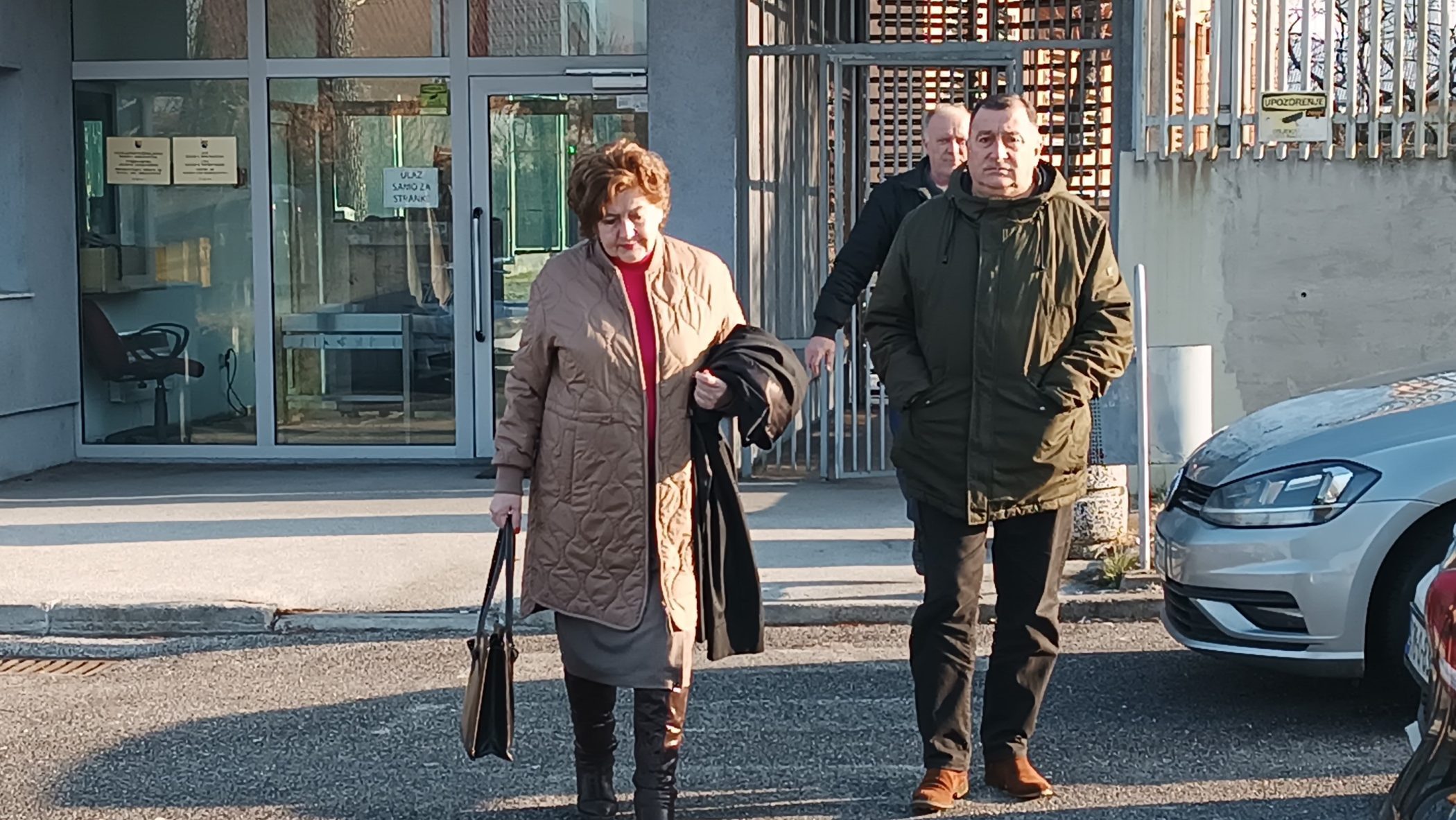This post is also available in: Bosnian
Defendants Ivica Cutura, Nikola Zovko, Petar Krndelj and Kreso Rajic have been charged with wartime crimes committed in the municipality of Capljina. According to the charges, Zovko was the commander of the police station in Capljina, Krndelj was the assistant commander of the Capljina police station, Rajic was the commander of a military police squad of the Croatian Defense Council in Capljina, while Cutura was an active policeman.
Under one of the counts, Cutura, Zovko and Krndelj have been charged with the unlawful arrest of civilians in the village of Veledarova Mahala and the transport of those civilians to the Gabela detention camp.
Witness Camila Veledar said her son, Alen, left the Croatian Defense Council at the beginning of the summer of 1993. She said after he was interrogated in Dretelj, he returned his military equipment and was sent home.
According to Veledar, he went to Mostar in order to join Bosnian Army units, but returned home with his three other cousins. She said they told her they would try to go to Croatia.
Veledar said he told her he was hiding in the woods with a few other people and asked her to cook a meal for them on the following day. Veledar said that on the third day, four masked Croatian Defense Council soldiers broke into her house and forced her and her family to leave. She said her husband, Vejsil, was taken to the Dretelj detention camp and that other Bosniaks were forced to leave their houses in Celjevo as well.
“They forced me to leave while I was preparing a meal. When they went into the house later on to pillage it, they realized there was too much food. They knew I had prepared it for somebody. They stayed in the house the entire day, until 10 p.m. Then they captured my son and took him away,” Veledar said.
She said she hasn’t seen her son since then. She said her neighbour, Stanko Boskovic, told her he saw her son being captured. He said he had scratches on his head and that the soldiers poured salt over his wounds. She said her husband found out later on that their son had been killed and dumped into the Neretva river, which carried his body to Ploce in Croatia.
“My husband had a colleague, a car mechanic named Niko, in Ploce. Some soldiers came to him one day in order to repair their car. They told him they had pulled Amel Veledar’s body from the Neretva. Niko asked them to show him photographs of the crime scene inspection. He recognized him, found us and told us where his body was,” Veledar said.
Prosecution witness Ahmet Veledar was the second witness to testify at today’s hearing. He said he was hiding in the woods near Veledarova Mahala with a group of Bosniaks. He said they surrendered to Croat forces after women from the village advised them to do so. He said defendant Ivica Cutura and Deni Brkic came to the village to pick them up. He said they were transported to the Gabela detention camp in two trips.
During Veledar’s examination, defendant Petar Krndelj tried to prove he was an active member of the Bosnian Army at the time. He said he wasn’t arrested and surrendered himself even though he had a chance to flee before Cutura returned to transport the second group of Bosniaks to the detention camp.
Ivica Cutura’s defense argued that Bosniaks surrendered voluntarily and could choose where they wanted to be taken. Veledar said Cutura didn’t force them to get into the minivan although he was armed. He said Cutura told the guards in the Gabela detention camp to take care of them because they were his neighbours.
The trial will continue on February 24.

